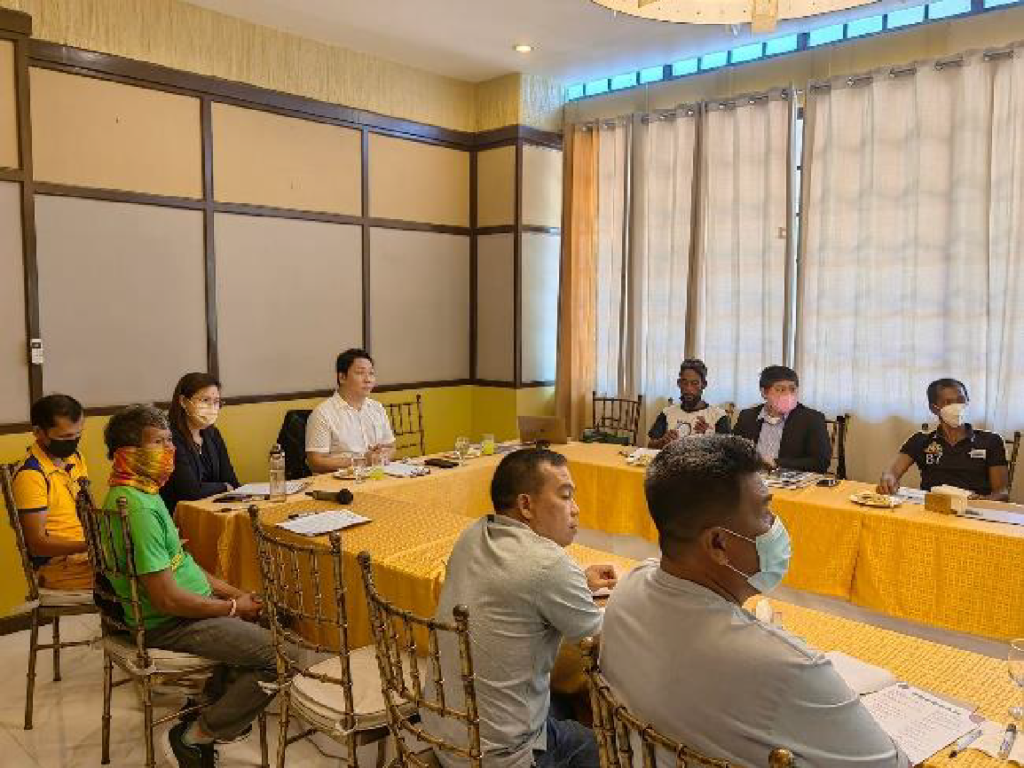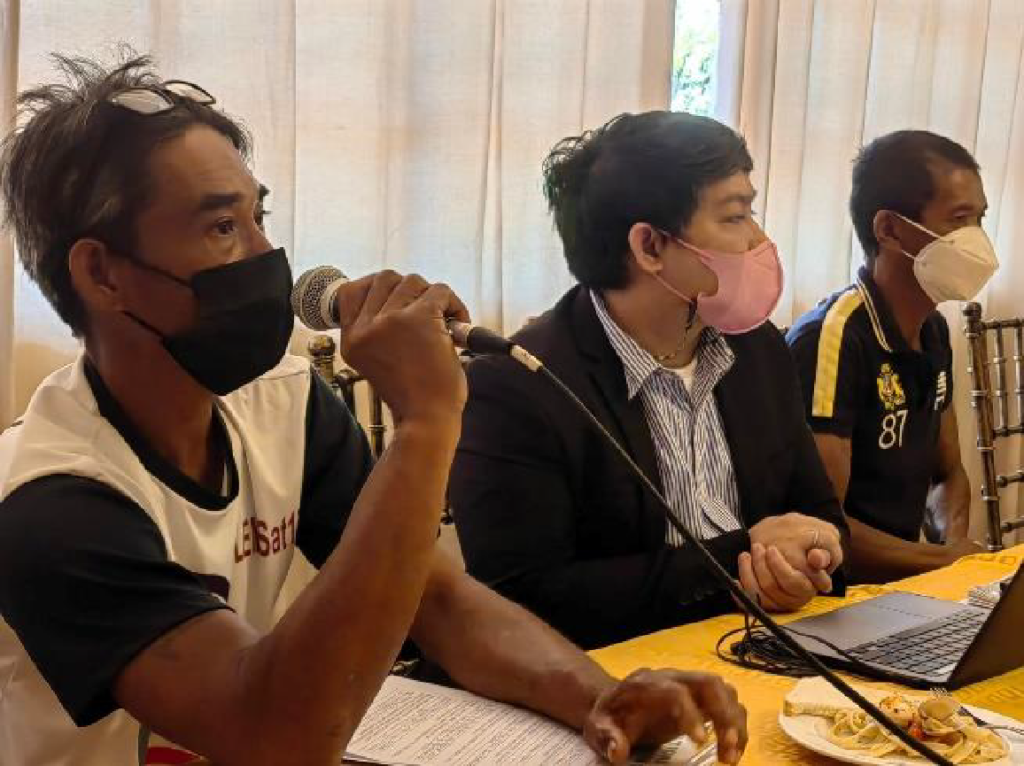As part of the their initiatives, the SECRA Philippine partner schools – Ateneo de Manila University, Malayan Colleges Laguna, and Philippine Normal University – held a series of roundtable discussions (RTDs) with representatives of different sectors to facilitate a better understanding of what climate and disaster resilience means in each sector, and how the academe can more meaningfully work with enterprises in the different sectors.
The Philippine Normal University (PNU) held the first of the roundtable discussions last 16 March 2022 with representatives from the academe, local government unit (LGU) and industry sectors. The event was held through a hybrid set-up, with participants joining on-site and via Zoom. The academe was represented by PNU President Bert J. Tuga; PNU Vice President for University Relations and Advancement Lordinio A. Vergara; PNU Dean of Faculty of Science, Technology, and Mathematics Brando C. Palomar; and Prof. Ma. Wenna V. Fernandez and Prof. Ulmamor Salutin of PNU Visayas. The local government was represented by Cadiz City Secretary to the Mayor Melvin Bacomo and Barangay Daga Barangay Officials represented by their Chairperson Lucien B. Olvido and Kagawad Ruben Emberga. The industry was represented by fishermen association chairpersons and presidents – Carlito Matulac, the chairperson of Purok Kakahuyan Small Fishermen Association; Jomar Alolor, the chairperson of Purok Kapispisan Integrated Fisherfolk Association; and Ronilo Dusara, the vice president of Purok Chairpersons of Barangay Daga.
The Malayan Colleges Laguna (MCL) held the second installment of the RTDs on 17 March 2022 via Zoom with representatives from the humanitarian and LGU sectors. The humanitarian organization sector was represented by Ms. Jocelyn Bellin, the current Director of the Center for Service Learning and Community Engagement (CSCE) of MCL, while the LGU sector was represented by Mr. Rudy Derez, the Officer-In-Charge of the Cabuyao City Disaster Risk Reduction Management Office.
The last installment of the RTDs was hosted by the Ateneo de Manila University on the same day via Zoom with representatives from the business and agriculture sectors. The business sector was represented by Mr. Elvin Uy, Executive Director of the Philippine Business for Social Progress (PBSP), while the agriculture and industry sectors were represented by Dr. Ernesto “Ka Ernie” Ordoñez, the Chair and Co-Founder of Alyansa Agrikultura and the Sustainable Development Committee Chair of the Federation of Philippine Industries.
The discussion during the RTDs revolved around understanding what climate and disaster resilience means in each sector and how the academe can more meaningfully work with these sectors for climate action and disaster resilience.
Among the salient points in the discussion across the RTDs was the limitation of the Triple Helix Model as a framework for university-enterprise collaboration, considering especially the role of NGOs, civil service organizations, people’s organizations that are not explicitly included in the framework. For example, NGOs are in a unique position to facilitate efforts for climate and disaster resilience by bringing together various stakeholders towards a shared vision. Local government units carry out important initiatives that mitigate disasters such as identifying vulnerable areas, anticipating worst-case scenarios, and educating the community. Moreover, sectors such as NGOs provide support and strengthen these initiatives as presented in examples of PBSP on their initiatives for various phases of disaster management. Emphasized also during the RTDs were the role of the humanitarian sector and the importance of gender equality and mental health in strengthening resilience
Various points on the role of the academe in strengthening collaborations for resilience were raised across the RTDs. Among them were the academe’s important role in providing education towards an inquisitive mindset, implementing projects for the vulnerable sectors, involving students not just as manpower, but in providing resources for relief operations and developing innovations for climate and disaster resilience. Described also as important was the role of the academe in engaging with the industry to make resilience more mainstream and engaging with people on the ground for meaningful transfer of knowledge. It was emphasized that state universities and colleges (SUCs) in the Philippines are in a unique position to engage with communities on the ground for climate action and disaster resilience.
Finally, insights on effective collaborations for climate action and disaster resilience were also raised during the RTDs. These include having clear delineation of roles and continued joint efforts beyond the implementation phase, especially having shared measures in monitoring the impacts of the initiatives toward climate action and disaster resilience. It is hoped that these insights get translated into actual collaborative actions from the various stakeholders.


